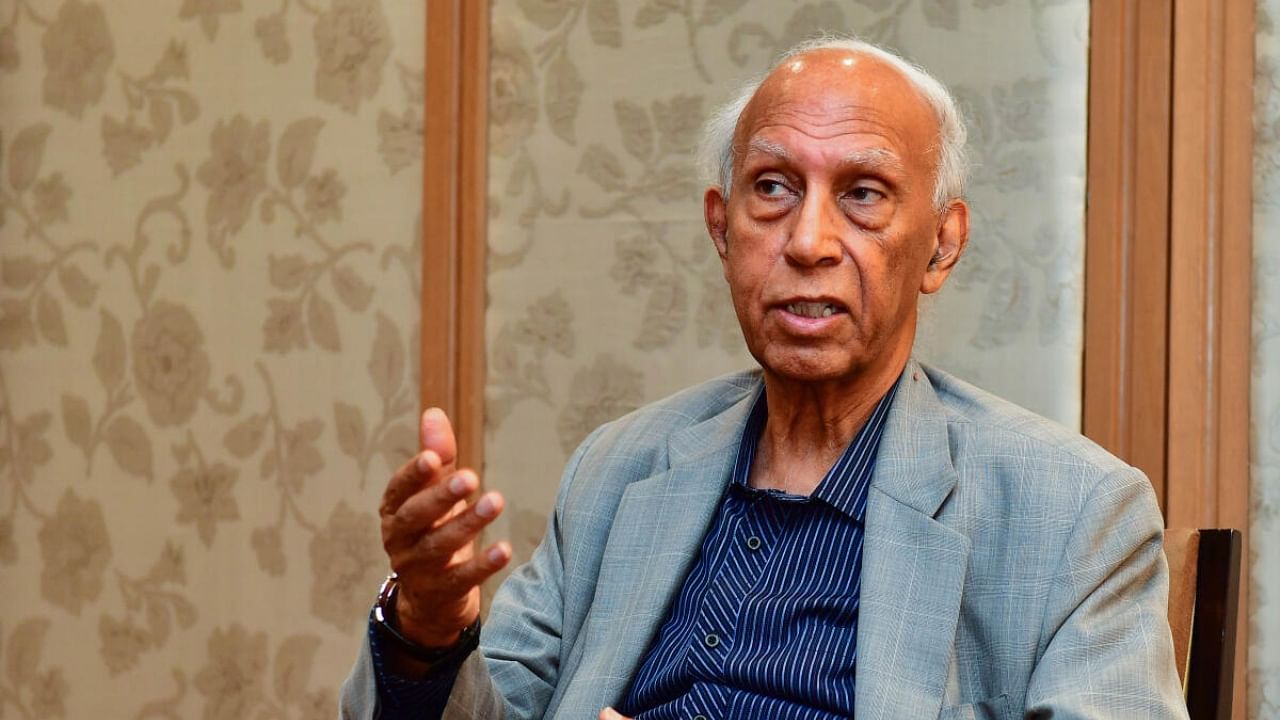
Ishtiaq Ahmed, Swedish political scientist and author of Pakistani descent who is on a visit to Bengaluru, speaks on a wide range of subjects in an interview with N B Hombal of DH. The Professor Emeritus of Political Science at Stockholm University gives his take on partition, Pakistan’s economy and how relations can be normalised between India and Pakistan. Excerpts:
How has been your India tour?
Fantastic. It’s been so good that I actually run the risk of forgetting names of people who have been kind to me, because I am meeting so many people and so many on the same day. It seems that I came here many, many moons ago, whereas I have been here since May 7.
What are your views on partition?
I strongly believed that partition was a blunder by many and its consequences have been devastating to the social understanding and building trust, which reflects in the politics of India and Pakistan. I am not too sure, but strongly hope that at some point, borders may disappear in this region too, like in the European Union.
What are the ways to help improve the relations?
Coming to India has greatly reinforced my belief that we people (peace lovers) will certainly isolate those who oppose these kind of activities (building relationships) in the years to come. I think both nations can take risks, allowing people from both sides to mingle with each other, by relaxing the present Visa regimes. This will greatly benefit Pakistan, as India has already proved that it can do without Pakistan.
Prior to the India visit, you had been to Pakistan. How do you analyse the socio-economic development of both countries.
India is doing good on most fronts, though it might be lagging in some areas. What India I have seen, it is progressing rapidly. On social parameters, women here are dressing freely, roaming around freely on motorbikes and public transport. But in Pakistan, it is still not the case, only the elite who can afford cars can roam around freely. But ordinary girls/women need to be very careful and always face hostile situations wherever they go. It is highly impossible for them to go out alone after 10 pm.
What is the biggest mistake Pakistan committed post-partition?
I think the 1965 war with India was in some ways responsible for what Pakistan is today. Soon after partition, USA and World Bank invested heavily there, which helped the country achieve a certain degree of progress. But post the 1965 war with India, investment slowed down drastically. From then on, Pakistan was never able to recover economically. The textile industry, which was once flourishing, has now shifted to Bangladesh, where cotton is not even grown. Presently, the Pakistani economy is so bad that it can’t even raise a billion dollars to manage loans. It’s a failing state.
How can both countries handle the Kashmir issue?
Pakistan must abandon terrorism completely. Only then both countries can come to terms for real peace. Both countries accepting Line of Control as international border might help resolve the issue.
What does the future holds for Wahhabism?
I don’t think Wahhabism has any future, as Saudi Arabia itself is doing all it can to end Wahhabism. Someone needs to tell them what the real story is. Perhaps Saudi Arabia has taken the first step towards this. Hopefully, others will follow. I only hope they don’t assassinate the Saudi crown prince who has begun the reform process. There must be forces working within to ensure he doesn’t succeed.
What is your opinion about Uniform Civil Code?
I strongly believe in UCC. I believe in equality and everyone to gain from the same laws.